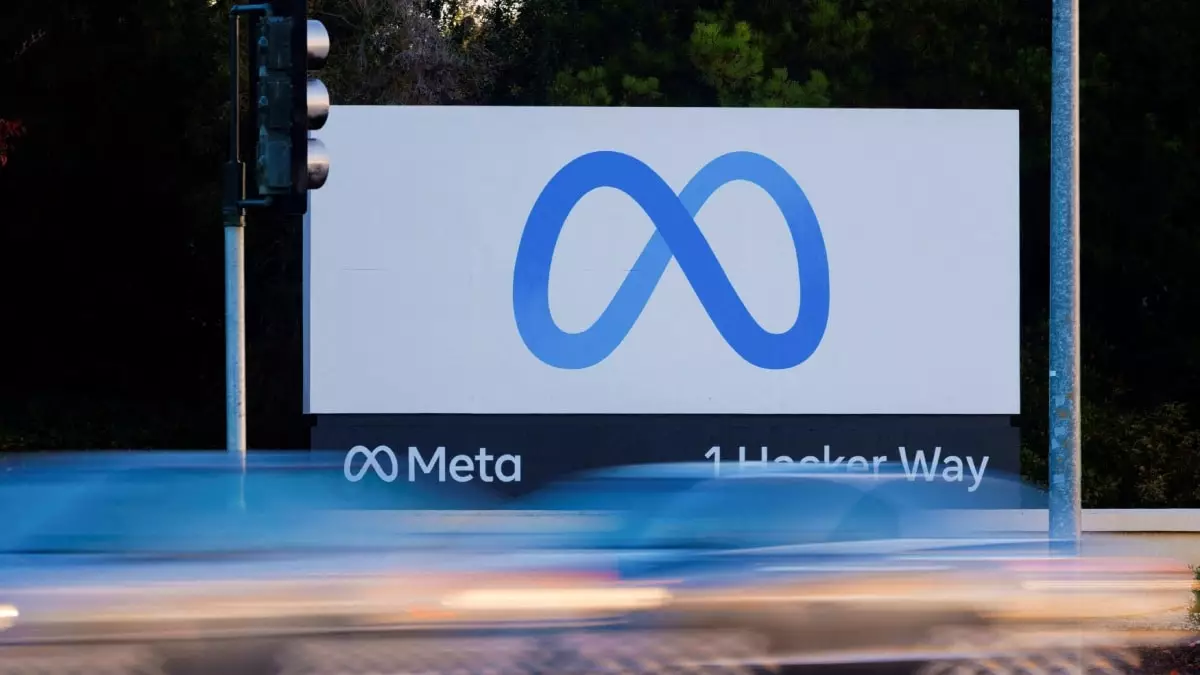In a significant development for antitrust enforcement, Meta Platforms Inc. has been slapped with a hefty fine of €798 million (approximately $841 million or around Rs. 7,100 crore) by European Union regulators. This ruling marks the first instance in which the tech giant has faced financial repercussions under EU antitrust laws, highlighting a growing resolve among European authorities to hold major tech firms accountable for anti-competitive practices. The European Commission’s decision notably directs Meta to cease its practice of bundling Facebook Marketplace with its flagship social networking service, Facebook. This action exemplifies the regulatory body’s commitment to ensuring a level playing field for online classified ads and protecting consumer choices.
At the heart of the EU ruling is the allegation that Meta leveraged its massive user base on Facebook to dominate the online classifieds market, effectively stifling competition and undermining smaller rivals. Margrethe Vestager, the EU’s antitrust chief, emphasized that Meta’s strategy involved creating an unfair trading environment for participants on rival platforms by tying their services to Facebook Marketplace. This tactic, according to Vestager, served to unfairly advantage Meta’s service over others—an approach that has drawn the ire of regulators aiming to foster innovation and fair competition in the tech sector.
This ruling arrives amid a tumultuous period for Meta, as it faces multiple legal challenges and public relations issues, including ongoing scrutiny in the United States regarding its business practices. Recently, a U.S. judge permitted the Federal Trade Commission’s antitrust lawsuit against the company to proceed, further compounding Meta’s legal troubles.
The Wider Landscape: EU’s Approach to Big Tech
The EU has demonstrated a stronger regulatory posture over the past decade, particularly against Silicon Valley companies. Vestager has been a key figure in this movement, having imposed billions in fines on major players like Google. The situation for Meta is precarious; not only does this fine represent a financial burden, but it also indicates a broader trend of mounting regulatory pressure on tech giants. The introduction of the Digital Markets Act reinforces this trajectory, instituting stringent requirements for tech firms to ensure fair competition.
The European Commission’s inquiry revealed that Meta capitalized on data from competing platforms, leveraging it to enhance its Marketplace services, which raises ethical questions regarding data usage in the digital age. The ruling reflects an increasing commitment from EU authorities to protect smaller entities and foster a competitive online marketplace.
In response to the €798 million fine, Meta has indicated plans to appeal the ruling in EU courts, a process that could span several years. The company has criticized the decision as misleading and claimed it overlooks the realities of a vibrant European market. Such responses underscore Meta’s ongoing strategy to position itself as a champion of consumer choice while simultaneously battling regulatory scrutiny.
Despite the challenges, Meta’s financials reveal a resilient business model. The company recently reported substantial sales figures of $40.6 billion for the quarter ending September 30, representing a 19 percent year-on-year increase. This robust performance suggests that blueprints for growth, especially in its core advertising sector, remain largely intact, even in the face of legal hurdles.
While Meta is currently facing the brunt of regulatory wrath in Europe, the treatment of other tech giants like Amazon demonstrates the varied approaches regulators take. Amazon successfully sidestepped potential fines in a previous case regarding the misuse of sales data to preferentially promote its products. By agreeing to implement corrective measures, Amazon managed to quell immediate regulatory concerns, contrasting sharply with Meta’s current predicament.
In tandem with this scrutiny, other tech entities are also under investigation by the EU. For instance, Apple is anticipated to confront its first fine related to compliance with new regulations. Such increased regulatory vigilance across the sector indicates that Big Tech is at a critical juncture, with major implications for how such companies operate moving forward.
As antitrust scrutiny intensifies globally, Meta’s recent fine serves as a poignant reminder of the challenges that come with being a goliath in an increasingly regulated digital landscape. With looming appeals, ongoing investigations, and a wave of policy changes, the path forward for Meta and similar companies will be fraught with challenges. This situation propels the dialogue about the balance between innovation and regulation to the forefront, emphasizing the need for an ecosystem that promotes healthy competition while safeguarding consumer interests. In a world where digital platforms inherently affect every aspect of modern life, the stakes could not be higher.


Leave a Reply